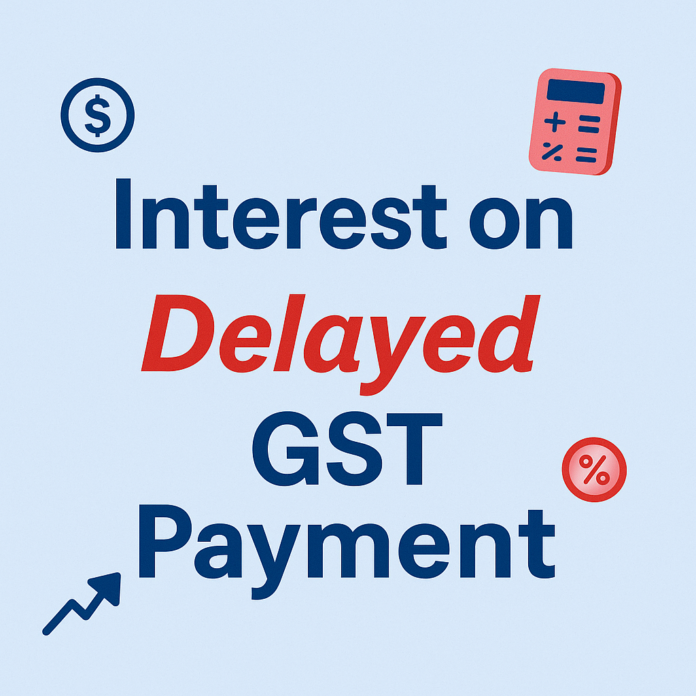The Goods and Services Tax (GST) regime aims at seamless compliance and timely tax payments. However, where a taxpayer delays or defaults in fulfilling this obligation, the GST law imposes interest to ensure fiscal discipline. The statutory provision for this lies in Section 50 of the CGST Act, 2017, which mandates interest payment under various non-compliance scenarios.
When Is Interest Levied Under GST?
Interest is levied in the following situations:
– Failure to pay GST within the prescribed time.
– Short payment of GST.
– Wrong availment and utilisation of Input Tax Credit (ITC).
– Incorrect reduction of output tax liability.
Under Section 50(1), if GST is not paid within the due date, interest at a rate not exceeding 18% per annum is applicable for the delayed period. Importantly, the Finance Act, 2021 and Notification No. 16/2021 – Central Tax, clarified that interest will be levied only on the net cash liability (i.e., the portion paid through electronic cash ledger), provided the return is filed late but no proceedings under section 73, 74, or 74A have commenced.
Interest Rate Structure under GST
– 18% p.a. for delayed payment of tax.
– 24% p.a. for excess or wrongful availment and utilisation of ITC or wrongful reduction of tax liability.
This higher interest under Section 50(3) is specifically for those who avail and utilise ineligible ITC or misrepresent output tax deliberately.
How is Interest Calculated?
Interest is computed from the day after the due date till the date of actual payment.
Interest on GST Refund Delays
Under judicial scrutiny, it has been held that taxpayers are eligible for interest if there’s a significant delay in processing refunds. Notably, in the case of Global United Shipping India Pvt. Ltd., the Madras High Court ruled that interest starts after 3 months from the date of refund application, as per Section 56 of the CGST Act.
How Does the GST Portal Calculate Interest?
When you file GSTR-3B late:
– Interest is auto-calculated and populated based on past tax liability.
– Taxpayers can override but need to justify changes.
– Any modification highlights fields in red for audit trail.
Section 50 (Bare Act Highlights):
“Every person who fails to pay tax within the prescribed period shall pay interest at such rate, not exceeding eighteen percent…”
“Where input tax credit has been wrongly availed and utilised, interest shall be paid at such rate not exceeding twenty-four percent…”
“Interest shall be calculated from the day after the due date till the date of payment.”
These provisions underscore that interest under GST is a statutory obligation, not a discretionary penalty. Thus, prompt and accurate compliance helps avoid financial setbacks and keeps the working capital cycle healthy.
Conclusion
Understanding interest under GST is crucial for all registered taxpayers. Mismanagement of due dates or careless ITC claims can lead to significant interest liabilities and affect your compliance rating. Stay vigilant, file returns on time, and always reconcile ITC properly. Let your GST journey be smooth—not taxing!



